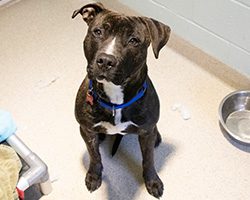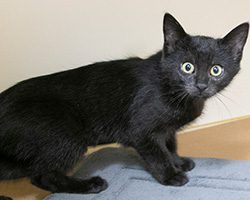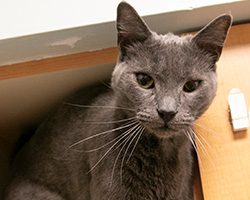Several Animals in ARL’s Care Thanks to Acts of Kindness
Good Samaritans paying it forward with acts of kindness
A number of animals have recently come into the care of the Animal Rescue League of Boston (ARL) thanks to kind-hearted and compassionate Good Samaritans that acted when seeing an animal in distress, and these acts of kindness made a tremendous difference in the lives of the animals involved.
Whether found in a parking lot, basement, or along the side of the road, the animals recently brought to ARL by Good Samaritans were in varying degrees of health, but all had one thing in common – compassionate and caring individuals who took time out of their day to help an animal in need.
Along with a handful of cats who have already found their permanent homes, ARL is currently caring for an 11-month-old male Pitbull named Peanut Butter, who was recently found along a busy road in Dedham and was in dire need of rescuing.
Wandering along the side of Route 109 at night, the dark-colored dog was in danger of being struck by a vehicle, and additionally, the night he was found, temperatures were in the teens, adding to the animal’s vulnerability.
Seeing Peanut Butter on the side of the road, the Good Samaritans took action, pulling over and getting the dog into the vehicle.
The rescuers brought him home for the night and the next day brought him to ARL’s Dedham Animal Care and Adoption Center.
While in good overall health, Peanut Butter was not wearing a collar, tags and was not microchipped.
ARL made efforts to track down his owner, but to no avail.
He is now available for adoption, and ARL looks forward to finding him the forever home he deserves.
ARL is grateful to all those who pause from their busy daily schedules to help an animal in need, and encourages anyone who finds an animal to contact their local animal control and animal welfare organization to ensure the animal receives the care they need.















